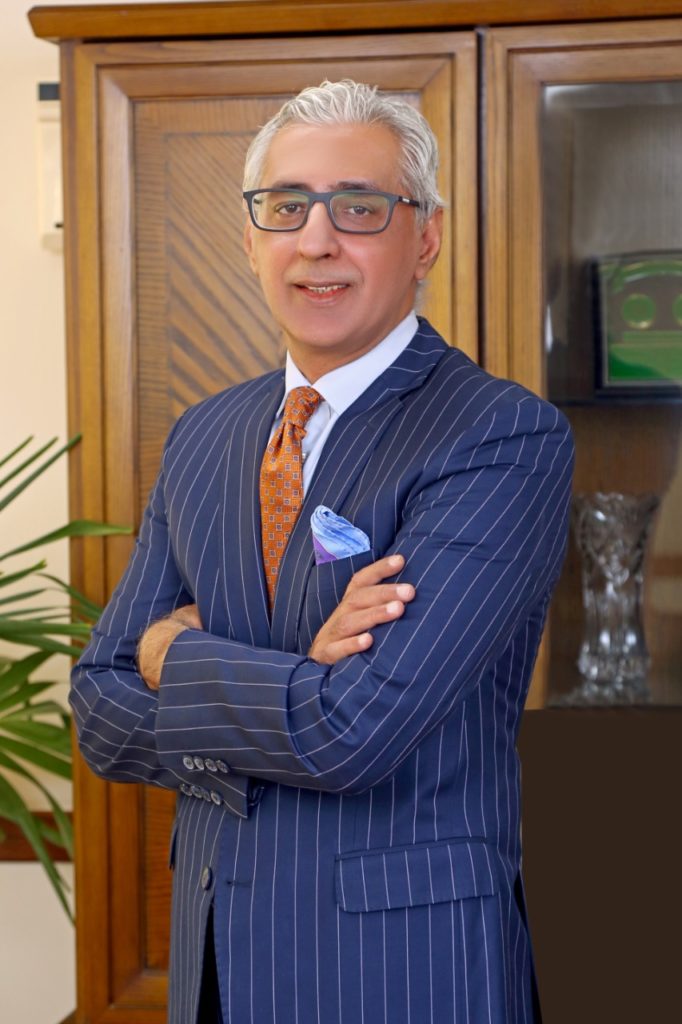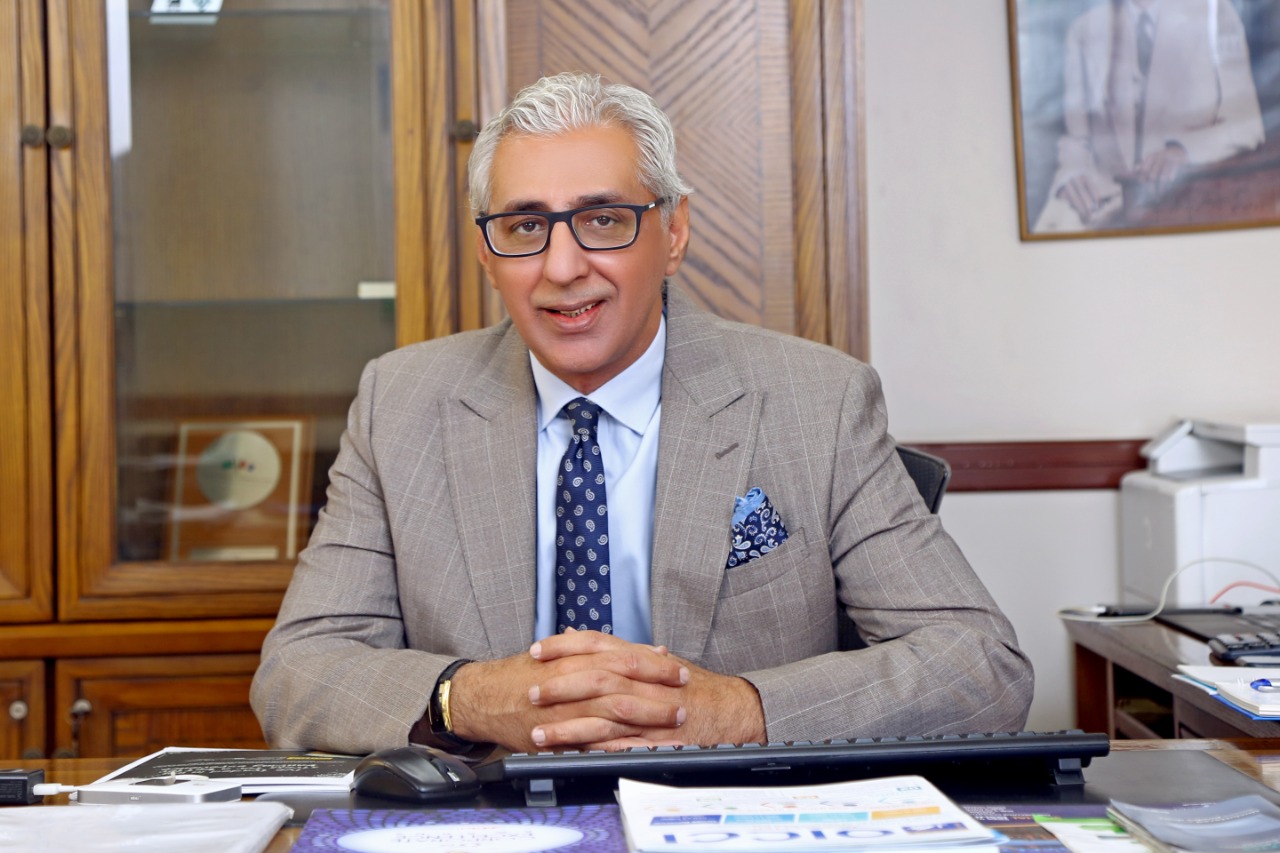Interview with Mr.Humayun Akhlaq, Country President, Schneider Electric Pakistan

With global presence in over 100 countries, Schneider Electric is a leader in power management (medium voltage, low voltage and secure power) as well as automation systems. The company provides integrated efficiency solutions combining energy, automation and software. Meet Humayun Akhlaq, Country President, Schneider Electric Pakistan in an exclusive interview with Engineering Post.
Q) Schneider Electric is a leader in digital transformation and energy management and automation and has been ranked as the world’s most sustainable corporation by Corporate Knights in 2021. How do you see Schneider Electric’s long track record on sustainability?
Climate change and social inequality are the biggest challenges of our generation. The technologies to address these challenges exist, and are increasingly viable and competitive — digital, electrification and automation solutions that allow us to operate everything more efficiently. But we need to go still further to make the world a greener, fairer place. Schneider Electric has long acted on this, and we keep raising the bar for ourselves and our customers. Our purpose is to empower all to make the most of our energy and resources, bridging progress and sustainability for all.
Customers, employees, partners and investors have never been more focused on Environmental, Social and Governance (ESG) considerations. It’s our responsibility to support them in their sustainability journeys. We do this by delivering digital innovations and solutions that bring energy, carbon and resource efficiency to our own operations and to those of our customers, suppliers and partners. We hold ourselves to account with our Schneider Sustainability Impact (SSI) program. This commits us to: acting for a climate-positive world; being efficient with resources; living up to our principles of trust; creating equal opportunities; harnessing the power of all generations; and empowering local communities.
What organizations require today is a trusted partner who combines strategic planning and target setting with a proven track record of solutions implementation to deliver faster, tangible sustainable outcomes. Having successfully overcome many sustainability challenges ourselves, and in so doing, achieved world-leading digital and electric solutions, we are well-positioned to help others go faster and further.
Q) How is Schneider Electric utilising digitalisation?
As part of our ambition to drive sustainable innovation and build net zero pathways, Schneider Electric helps customers in many sectors to innovate and move to open, interoperable, digital, and simplified systems and smarter ways of doing business, for carbon abatement in homes, buildings, data centers, power grids, and industries.
Q) What is Electricity 4.0? And what are the benefits of E4.0 for customers, partners, and industry?
Electricity 4.0 is the convergence of electric and digital at scale. It is the fastest route to cleaner, smarter, more efficient energy.
Whilst many people are familiar with Industry 4.0, we set out to explain that over the last 250 years, the world has in fact gone through 4 technology-driven revolutions, impacting simultaneously the worlds of industry and electricity. We need to start by re-thinking our relationship with energy, which is responsible for over 80% of the world’s carbon emissions. We firmly believe that the solution is a world that is more electric and more digital. At Schneider, we call this Electricity 4.0.
Electricity is the most efficient energy (proven to be 3-5 times more efficient than other sources) and it is also the best vector for decarbonization (we expect to see 6 times more electricity coming from renewables by 2040… from 6% today to 40% in the next 20 years). Our customers, partners and the wider industry look for ways to decarbonize, and Electricity 4.0 delivers measurable, sustainable outcomes with technologies that already exist today.
Innovation today relies heavily on both electric and digital. From gadgets that make our lives better, to digital home-working, to e-mobility. And Schneider is helping drive change in the world to make our customers’ and partners’ operations more sustainable.
Q) What do you predict for the future when it comes to future of Automation? Will we be seeing more from Schneider Electric in general?
Schneider Electric accelerates the digital transformation for buildings, infrastructure and industry to create a smart and green future in the new electric world. Our strong agnostic software portfolio and partnerships with world-leading independent software companies bring energy and automation digitalization, empowering all users with a seamless and collaborative dataflow across the entire life cycle, from design and build to operate and maintain.
Our customers are looking for efficiency and energy savings. Our software is available on open and collaborative platforms which help them achieve this, by sharing data seamlessly with all the users in their ecosystem. Over the past five years, we’ve strategically built out and enhanced our software capabilities through a series of acquisitions, investments and partnerships. This means we can offer our customers a broad, deep, and fully-integrated suite of software that connects the physical and digital world, combining energy management and automation, to help change the way buildings, industries, and cities are designed, built, and operated.
Q) How can the efficiency of electricity generation, transmission and consumption be improved in Pakistan?
A smart power grid can help improve the overall efficiency of electricity consumption, by significantly reducing electricity consumption. The price of a smart grid is paid back over time through the energy saved by residents and the capital expenditure reduction by the utility. Indeed, clean and affordable sources of energy are a key requirement to effectively combat future environmental challenges.
Solar panels, for instance, are safe, easy to install, reliable and widely available. The opportunities offered by these alternatives should be taken up more widely as a priority for all stakeholders. Even so, adequate policy measures to create a level playing field.
Smart grid solutions are also playing a central role in transforming the power industry. By letting businesses know how much power they are using, the machines involved and the costs every minute of the day, you provide them with the necessary tools to measure and reduce energy consumption.
Ultimately, to successfully manage the country’s energy supply, we must be able to monitor it, benchmark it, report on it and prioritise it for the coming years. This will be facilitated by big data and the innovations enabled by device-level monitoring.







